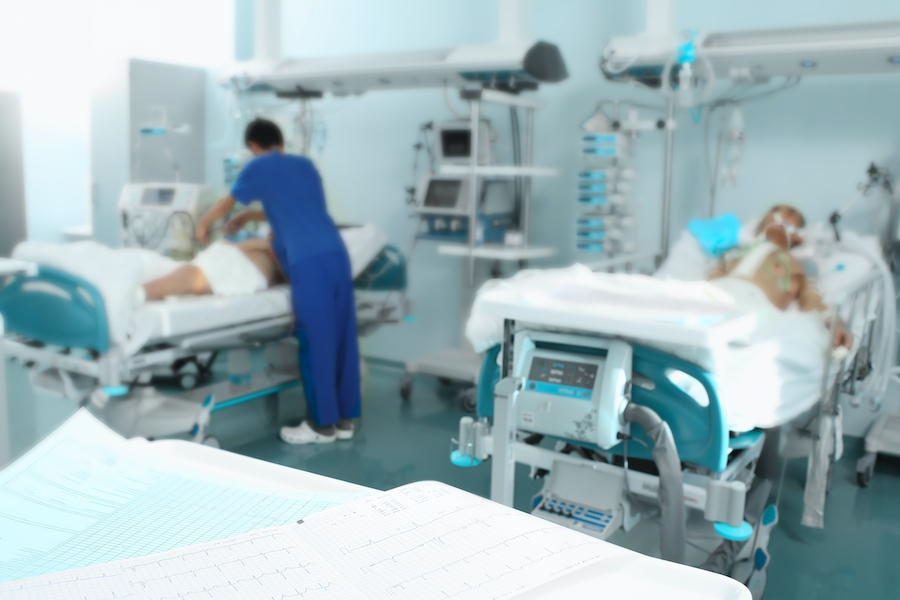Following last month’s launch of the Future Hospital 2050 webinar series on innovation in healthcare planning and design, we continue to examine some of the key drivers transforming the way critical healthcare services are being delivered now and in the future to 2050. Coming up later this month is a webinar focusing on ‘Innovation in the Workspace Environment’.
Faced with the challenges of a global workforce emergency that has been exacerbated by the pandemic, health systems and hospitals are in crisis. New integrated models of care and digital transformation supporting more personalised and connected care, set against the imperatives of the race to net zero, present a new and improved future vision of healthcare, but will also require new ways of working and new workspace environments, both front stage and back stage, to enable our healthcare workforce to thrive and flourish.
As the incidence of ‘burnout’, stress and mental health episodes rise, staff wellbeing can no longer be ignored if health systems are to attract and retain the skilled, dedicated workers needed to deliver high-quality healthcare services efficiently and effectively. In this programme, our expert international panel will examine the need, purpose and value of the workspace environment, challenging long-held assumptions and envisioning how to design and plan workspaces for the healthcare workforce of the future, in the future hospital. 
This next programme in the series, supported by WorkTech Academy, will be broadcast live on SALUS TV on 24 February 2022 – register now for this free webinar at: bit.ly/3KO5yJs
Key questions:
- Who is the healthcare workforce of the future, where will they work and what are their needs? From hospital leadership to clinical and nursing staff, to non-medical staff, including porters, caterers, cleaners and volunteers, how do we design inclusively for the diverse needs of all of the workforce?
- The role and purpose of hospitals is changing. How will this impact on staff roles, duties, experiences and the workplace settings and environments in which they operate?
- How is the qualitative and quantitative value of prioritising interdisciplinary collaboration and agility in hospital workspaces changing and how does this affect space planning and design?
- How can the workplace experience positively impact staff performance, work quality, and their physical, social and mental wellbeing and, consequently, the patients they treat and care for?
- What fundamental changes are required in the design and planning approach of workspace environments in response to the future needs, purposes, values and ways of working?
Chair:
Dr Liz Paslawsky, senior advisor, SALUS Global Knowledge Exchange, and former healthcare CEO, Australia
Panel:
- Dr Boubou Hallberg, CEO, Sodra Alvsborgs Hospital, Sweden
- Prof. Ann-Marie Wennberg, CEO, Sahlgrenska University Hospital, Sweden (TBC)
- Dr Lucio Naccarella, senior research fellow, University of Melbourne, Australia
- Lizette Engelen, workplace strategist, Engelen 2, Netherlands
- Karrie Long, director, Nursing Research Hub, The Royal Melbourne Hospital, Australia
- Dr Monika Codourey, architect and workplace consultant, Offconsult, Switzerland
‘Future Hospital 2050’ innovation series
Organised by European Healthcare Design, the ‘Future Hospital 2050’ innovation series launched last month (25-27 January) with a three-part mini-series supported by Brandon Medical and broadcast on SALUS TV.
Each 90-minute episode focused on a different “hot core” area and featured an international panel of leading clinicians, planners, designers and innovators to discuss the key issues. Case study examples were also shared.
Graeme Hall, executive chair at Brandon Medical, said the new innovation series aligns with the company’s mission to improve patient outcomes and clinical teams’ work environments. And underlining the need to accelerate the pace of transformation in healthcare, he added: “We believe and work in partnership, and we recognise that collaboration and dialogue need to be nurtured. We are excited to support this series to create the space for dialogue on how innovation can lead to better healthcare.”
Watch the series by clicking on the links below.
The Future Hospital 2050: Innovation in surgical care

